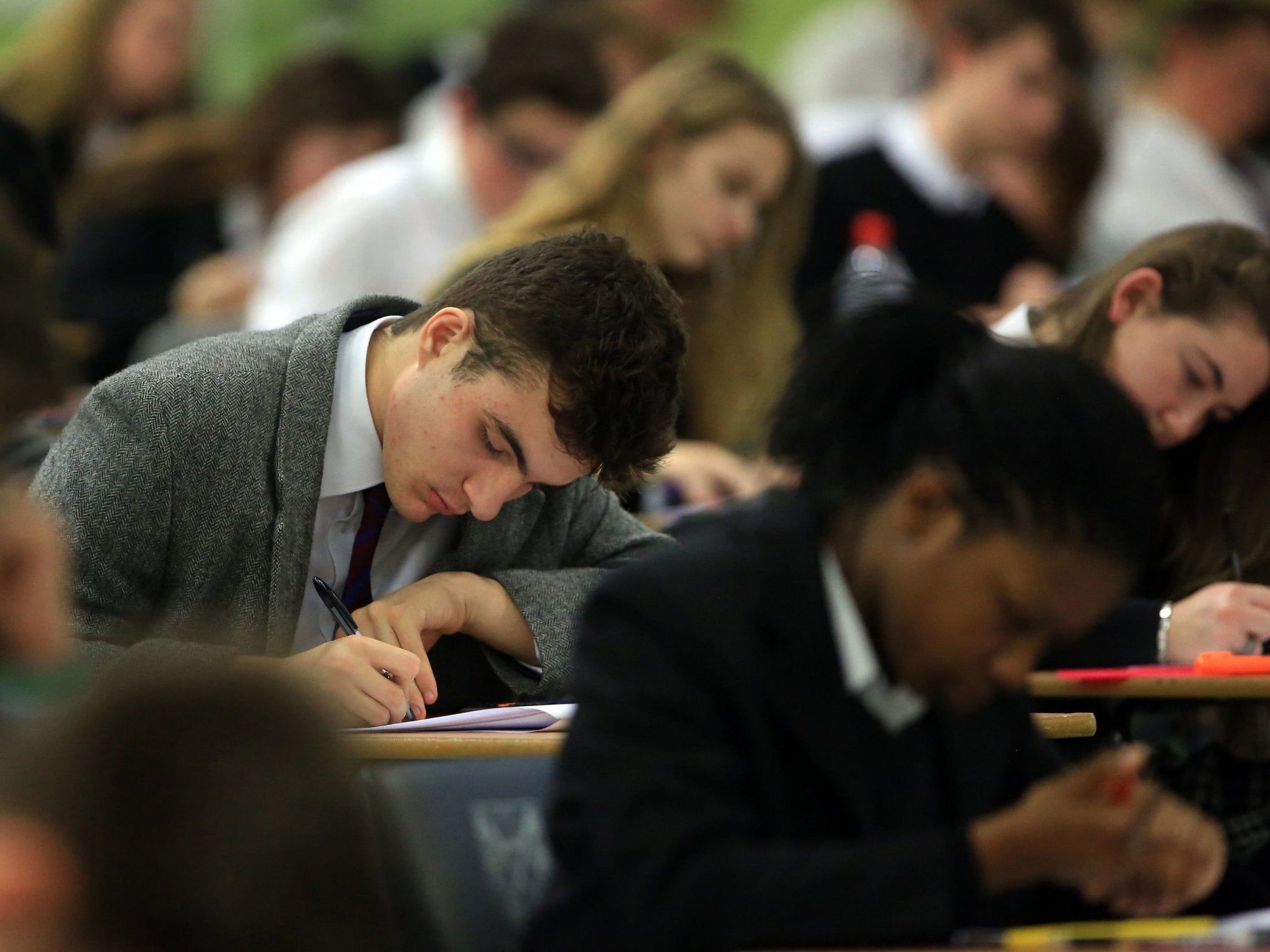Fewer students taking design and technology and music at GCSE, figures reveal
Government policy 'destroying' less academic subjects in schools, says union

Your support helps us to tell the story
From reproductive rights to climate change to Big Tech, The Independent is on the ground when the story is developing. Whether it's investigating the financials of Elon Musk's pro-Trump PAC or producing our latest documentary, 'The A Word', which shines a light on the American women fighting for reproductive rights, we know how important it is to parse out the facts from the messaging.
At such a critical moment in US history, we need reporters on the ground. Your donation allows us to keep sending journalists to speak to both sides of the story.
The Independent is trusted by Americans across the entire political spectrum. And unlike many other quality news outlets, we choose not to lock Americans out of our reporting and analysis with paywalls. We believe quality journalism should be available to everyone, paid for by those who can afford it.
Your support makes all the difference.More pupils are turning away from technical subjects at GCSE and fewer students are choosing to study English at A-level, the latest figures from the exams watchdog have revealed.
Meanwhile the government’s focus on more traditional academic subjects and the introduction of tougher GCSEs have narrowed the curriculum on offer in schools, education unions have warned.
Figures from Ofqual show that the popularity of design and technology, engineering and a number of arts subjects has declined among students taking their GCSE exams this summer.
It came after a group of elite universities said they would scrap a list of “preferred” academic A-level subjects amid criticism that creative and technical subjects had been squeezed out of schools.
Fewer pupils have been entered into GCSE subjects that are not included in the English Baccalaureate (EBacc), is a measure that judges schools on the number of students that take up maths, English and science, a foreign language and either history or geography.
Overall, the number of entries to non-EBacc subjects fell by 9 per cent this year. And in design and technology, entries among GCSE students fell by 23 per cent.
Meanwhile, entries to media, film and TV studies GCSEs fell by 12 per cent and entries to music among GCSE students dropped by 3 per cent.
Kevin Courtney, joint general secretary of the National Education Union (NEU), said the figures showed how “government policy is continuing to destroy the arts, PE, creative and technical subjects.”
Earlier this week, The Independent revealed that the Russell Group would no longer list “facilitating subjects” – similar to the EBacc subjects – amid criticism the practice was narrowing the curriculum.
Union leaders and arts sector leaders have called on the government to scrap the EBacc performance measure in light of the move from the group of 24 universities in the UK.
James Bowen, director of policy at school leaders’ union NAHT, said the government should be concerned by the “steep decline” in subjects like design and technology.
He added: “We’d urge the government to abandon its EBacc target as it is doing more harm than good, and evidentially narrowing opportunities for students.”
But it is not only the less traditional academic subjects that have been hit by government reforms, as the Ofqual statistics show a 13 per cent fall in the number of students taking English at A-level.
The cohort sitting their A-levels now was the first to sit the new tougher GCSEs in English, which require students to memorise a large amount of information, in 2017.
And over two years, entries for A-level English have dropped by more than one-fifth – from 74,350 in 2017 to 58,870 this year.
Geoff Barton, general secretary of the Association of School and College Leaders, said he had heard that GCSE reforms had put students off students taking English at A-level.
He said: “Unsurprisingly, the mechanistic nature of these GCSEs is failing to inspire a love of English in students. It is very sad to see that this has resulted in the decline in A-level English entries we are now witnessing.”
The number of GCSE German entries also fell by 2.5 per cent in the past year, but overall more students are taking modern foreign languages at GCSE and uptake remained stable at A-level.
Nick Gibb, school standards minister, said: “It’s important that young people leave school prepared for life in modern Britain and with the widest set of options available to them.
“Core academic subjects, such as English, maths, science and foreign languages are key to making that a reality.”
The minister added that he was pleased to a rise in entries to GCSE arts subject – including a 9 per cent increase in entries to art and design subjects.
He said: “The arts are an important part of the curriculum, and I know the best schools combine a rich cultural education with excellence in core subjects.”
Join our commenting forum
Join thought-provoking conversations, follow other Independent readers and see their replies
Comments